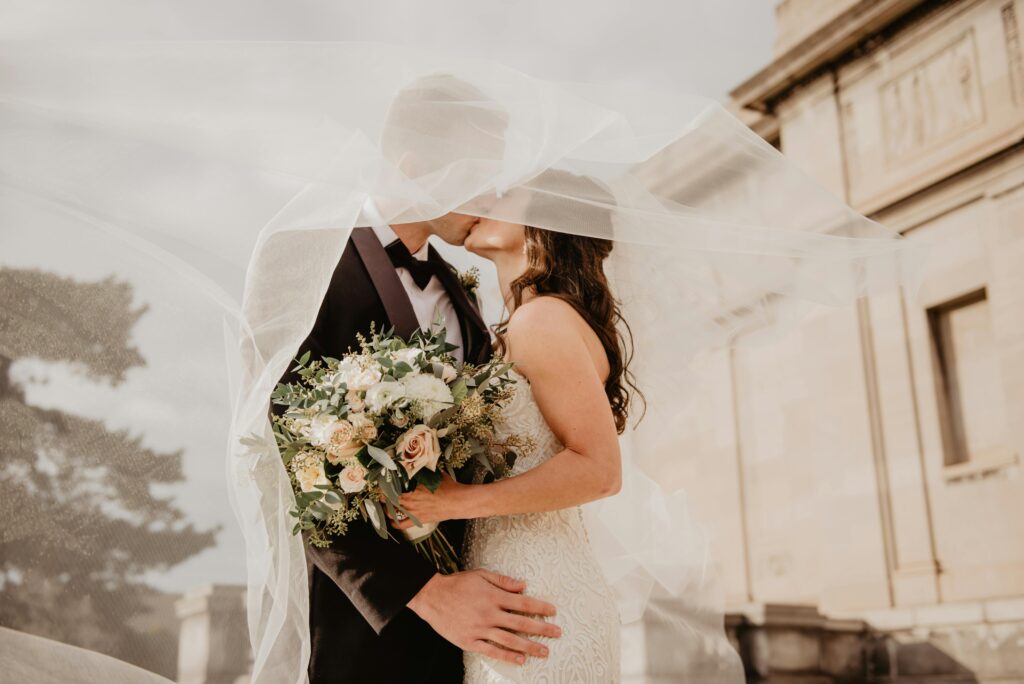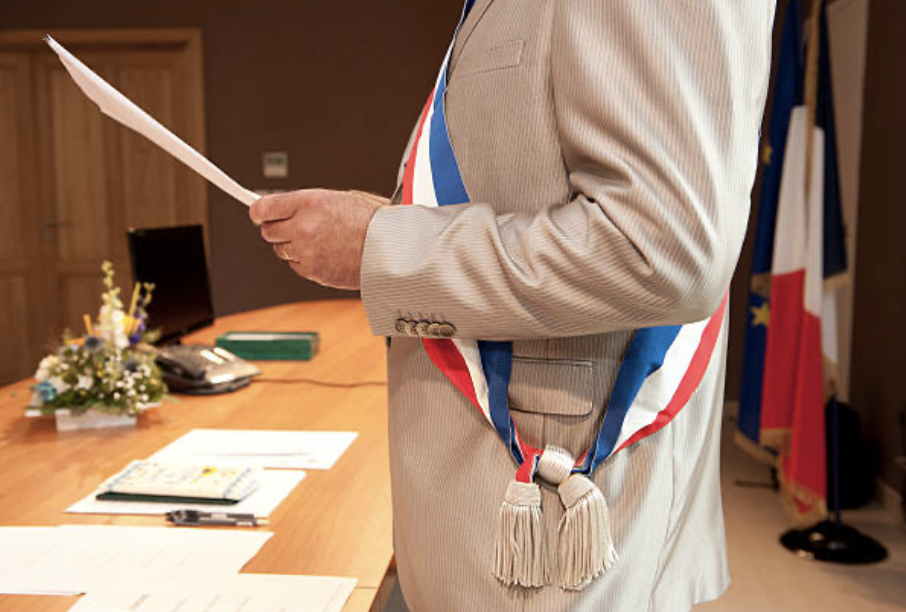The civil ceremony is an essential step to officially seal your marriage. Whether simple or elegant, intimate or more festive, it is important to be well prepared to make it a memorable moment. Discover everything you need to know to ensure your civil wedding is well planned, chic, meaningful and unforgettable.
Why choose a civil ceremony?

Civil marriage: a mandatory step
Going to the town hall is an essential step to officially unite two people. It is required before any religious or secular ceremony and is open to all couples, regardless of religion or beliefs.
In the past, traditional weddings took place in a single day: from the civil ceremony to the religious ceremony and then the reception. All guests and family members attended every part of the wedding. But nowadays, many couples choose to have their wedding in several stages, making the civil ceremony an event in its own right. Combining practicality and trendiness, this approach makes it easier to accommodate town hall availability while celebrating your love twice as much.
A simple and accessible wedding ceremony
More and more couples are choosing a civil wedding for its authenticity and simplicity. They see it as an opportunity to celebrate their union in an intimate setting, surrounded by loved ones. Although it is the only mandatory step, they can make it unique by adding a personal touch such as carefully chosen decorations and meaningful texts that reflect who they are. By focusing solely on this ceremony, they reduce constraints and free up their budget for what truly matters to them, an outfit they love and a sincere moment that reflects their true selves.



Civil marriage: a simple and symbolic commitment
The simplicity of a civil wedding is a perfect solution for couples who want to commit to their union in a discreet and meaningful way. It also allows them to host a more festive reception with more guests later on, following a religious or secular ceremony. This two-step approach helps accommodate the often limited time slots available at the town hall.
Our tips for planning your civil wedding successfully.
Administrative procedures and witnesses
Before the ceremony, you’ll need to take care of the administrative formalities. A complete application must be submitted to the town hall where you wish to get married, which must be located in the municipality where either of the future spouses or their parents reside. This file includes your IDs, proof of address, and birth certificates. As for witnesses, at least one is required, and you may have up to two each. Their role is mainly symbolic, but they are essential to make the union official. Choosing your witnesses is a thoughtful decision, whether based on practicality or heartfelt connections.
Choosing the date and time
The couple sets the date and time of their ceremony based on the time slots offered by the town hall. These slots can be limited, especially during wedding season when demand is high. To avoid disappointment, many couples book their date several months in advance, especially if they’re aiming for a summer Saturday. This choice often influences the overall organization of the day. A late-morning ceremony allows for a relaxed lunch and a laid-back afternoon, while an afternoon slot sets the stage for a more festive evening reception.
Planning your town hall outfit
Whether you are opting for a multi-step wedding or a single civil ceremony, choosing the right civil wedding dress is essential. Today, more and more brides are choosing a look that is both simple and elegant for this special moment. Break away from traditional wedding norms by wearing a short dress or a jumpsuit, both perfect for combining style and comfort. Do not hesitate to surprise your guests with an outfit that suits your body shape, reflects your personality and matches the tone of your ceremony. There are countless civil wedding styles available so every bride can find the outfit that feels just right and makes her shine on the big day.
Check out our article dedicated to tips for choosing your civil wedding dress.
The civil wedding ceremony overview

The Big Day: what to expect?
On your wedding day, the reception at the town hall is usually simple yet takes place in a formal setting. Only the couple, their witnesses, and invited guests attend the ceremony at the town hall.
First, the mayor or civil officer outlines the rights and duties that bind the spouses, establishing the foundation of a deep commitment. Then, the couple exchanges their vows, sealing their promise of union before the law. Next, the rings are placed on their fingers, precious symbols of this sacred bond. Finally, signing the registers formalizes this new chapter — the beginning of a shared life.
Duration and atmosphere of the ceremony
The civil ceremony typically lasts between 15 and 30 minutes. While it maintains an official tone, some town halls offer the possibility to create an atmosphere that reflects your personality. For example, the mayor can deliver a speech that is either warm or more solemn, depending on your wishes. Additionally, you can add a personal touch, such as subtle decorations or soft background music. All these thoughtful details are prepared in advance to make this moment a unique and memorable experience.

Planning a reception or celebratory meal



ChatGPT a dit :
The reception or meal following the civil ceremony is the perfect moment for everyone to come together and share a drink and some bites. Whether held near the town hall or at the couple’s home, the focus is on simple decor, music, and a festive atmosphere. Well planned, it offers a relaxed opportunity to enjoy time with loved ones before the rest of the celebrations.




